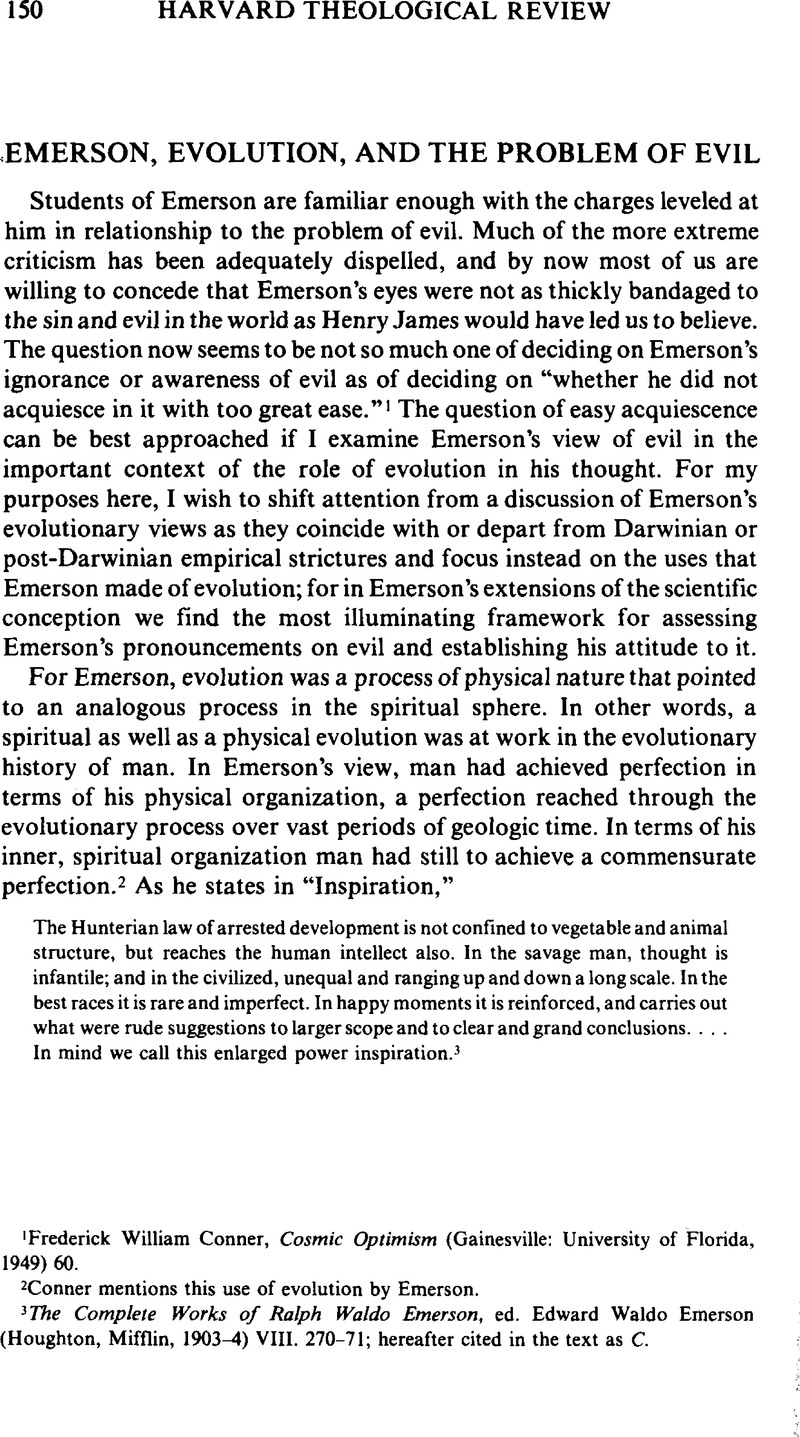Article contents
Emerson, Evolution, and the Problem of Evil
Published online by Cambridge University Press: 10 June 2011
Abstract

- Type
- Notes and Observations
- Information
- Copyright
- Copyright © President and Fellows of Harvard College 1979
References
1 Conner, Frederick William, Cosmic Optimism (Gainesville: University of Florida, 1949) 60Google Scholar.
2 Conner mentions this use of evolution by Emerson.
3 The Complete Works of Ralph Waldo Emerson, ed. Emerson, Edward Waldo (Houghton, Mifflin, 1903–4) VIII. 270–71Google Scholar; hereafter cited in the text as C.
4 The Journals of Ralph Waldo Emerson, eds. Emerson, Edward Waldo and Forbes, Waldo Emerson (Houghton, Mifflin, 1909–1914) IV. 197Google Scholar; hereafter cited in the text as J.
5 Conner also suggests that the theory of transmigration of souls influenced Emerson's conception of evolution. So too does Christy, Arthur, The Orient in American Transcendentalism (New York: Octagon Books, 1963) 112Google Scholar. I hesitate to stress overly this doctrine and its related doctrine of karma as Eastern influences in Emerson's thought, for the doctrines in Emerson seem to bear little affinity to their Hindu counterparts. Christy, seeing that very lack of affinity, dismisses too easily the position that the doctrines occupy in Emerson's thought, although he does grant that they exerted a significant influence. In relationship to transmigration, I think this is true as well of Carpenter, Frederic Ives (Emerson and Asia [New York: Haskell House, 1968] 141)Google Scholar.
6 Ralph Waldo Emerson, quoted by Conner, Cosmic Optimism, 62 from Gray, H. D., Emerson: A Statement of New England Transcendentalism as Expressed in the Philosophy of its Chief Exponent (Stanford: Stanford University, 1917) 77Google Scholar.
7 Conner, Cosmic Optimism, 63.
8 Ibid., 62.
- 2
- Cited by


